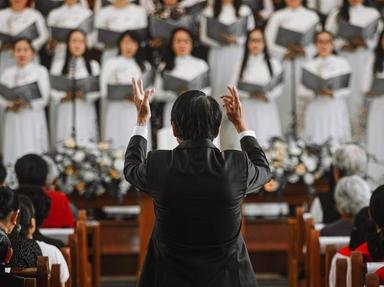Quiz Answer Key and Fun Facts
1. St. Basil the Great once said that this hymn is "so old, that we don't know where it comes from."
2. Which hymn was written by the Byzantine emperor Justinian the Great?
3. Which usually chanted liturgical response dates from the time of the Apostles and was originally used by them?
4. What is the book that contains all of the hymns associated with each of the 8 Tones called?
5. Which hymn of the Divine Liturgy was originally associated with Baptism?
6. Which hymn is possibly the only one that has retained its original (Byzantine) melody from the very beginning up until now?
7. Which tone is sometimes referred to by old-time Byzantine chanters as the "crying mode"?
8. We know that this hymn dates back at least to the time of the Council of Chalchedon in 451, because it is mentioned in the proceedings as having been sung.
9. All the Communion Hymns sung throughout the Church year are direct quotes from the Bible except one. Which?
10. Which traditional, well known Orthodox hymn did Tchaikovsky incorporate into his "1812 Overture"?
Source: Author
manny96
This quiz was reviewed by FunTrivia editor
CellarDoor before going online.
Any errors found in FunTrivia content are routinely corrected through our feedback system.

